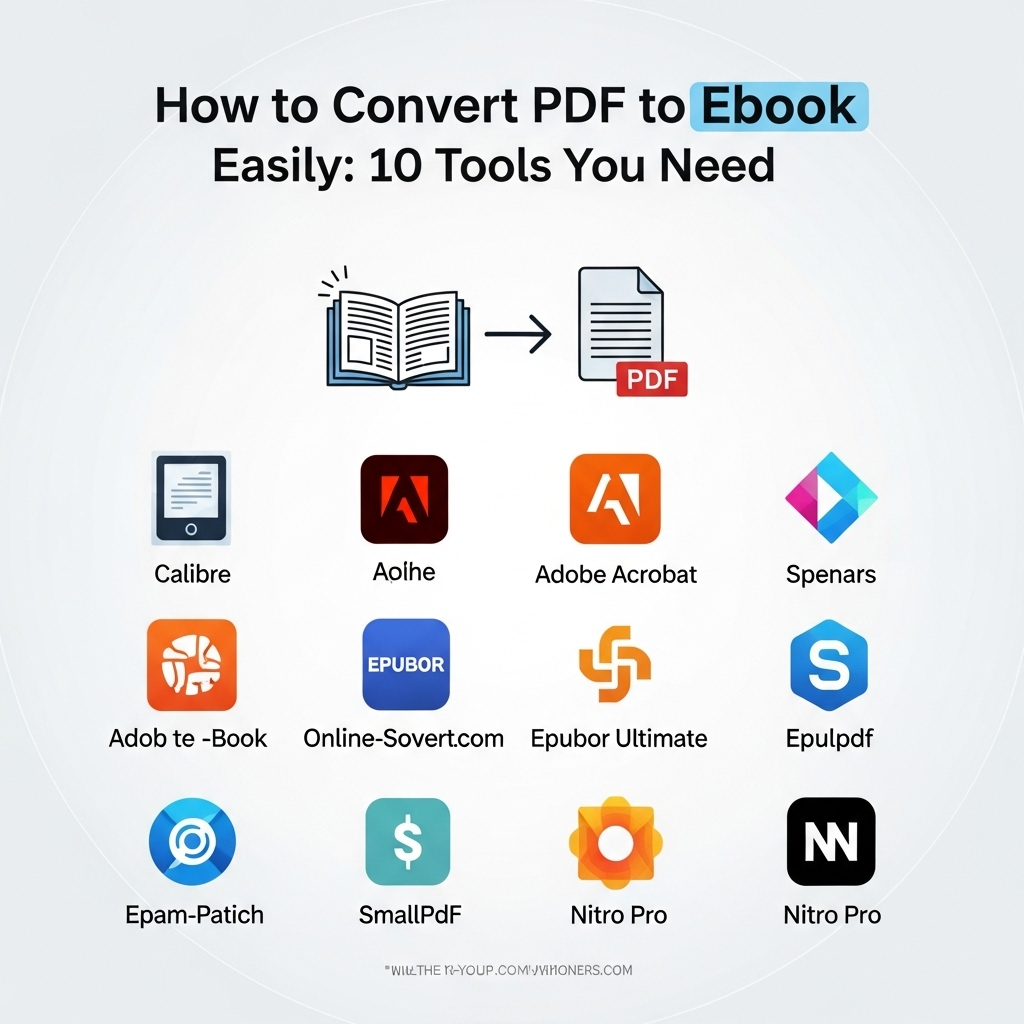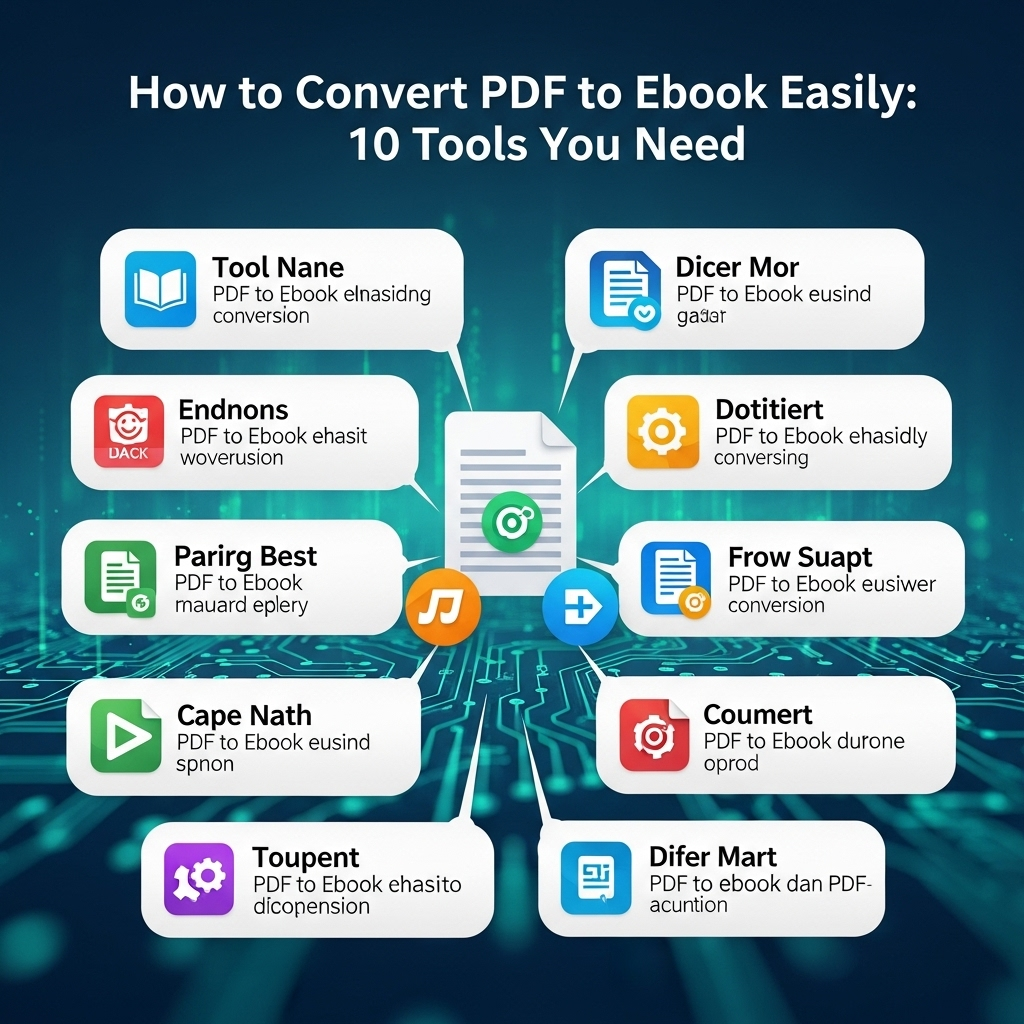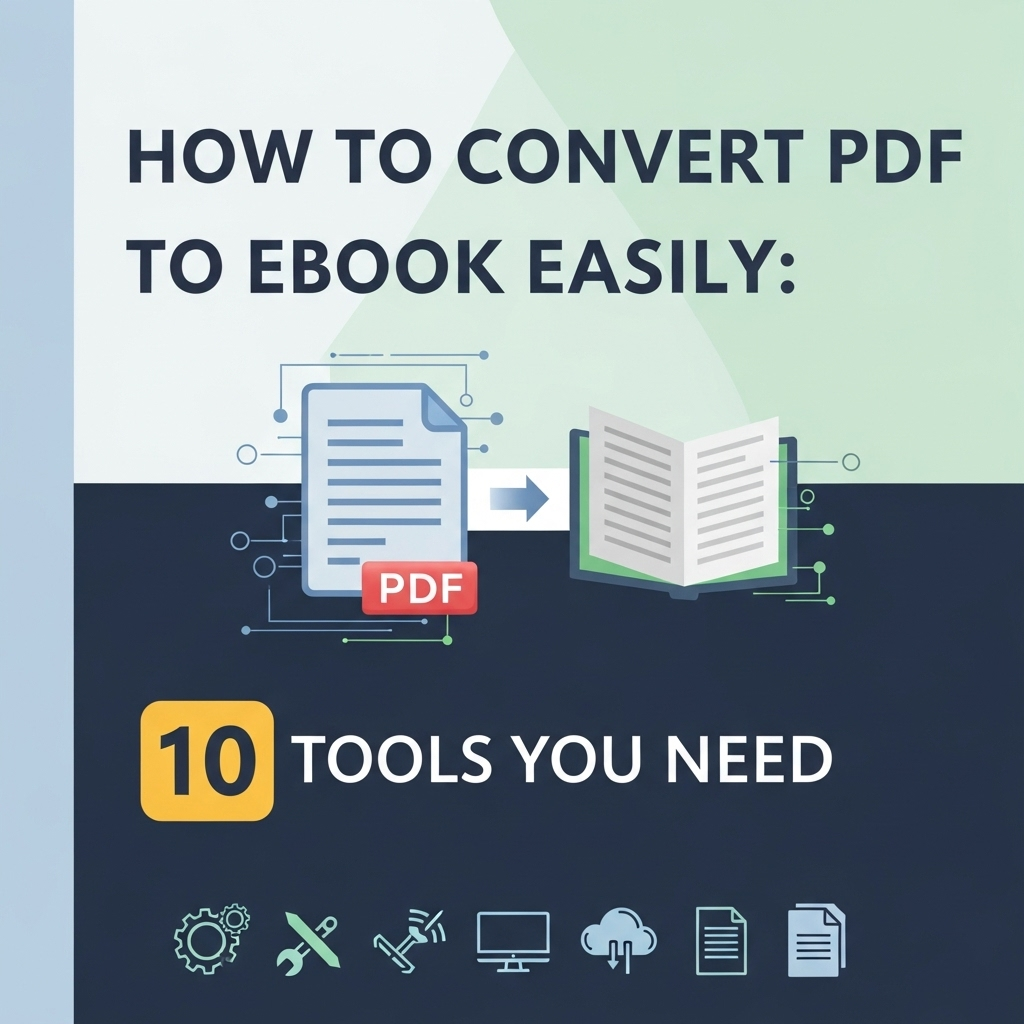Okay, so here’s the thing – PDFs are basically the flip phones of the digital world. Everyone’s moved on, but we’re all still carrying them around for some reason. Google’s been trying to make sense of PDFs since 2001 (I know, ancient history!), but honestly? It’s like asking someone to read your handwriting through foggy glasses. Google just gets regular websites and ebooks so much better.

If you’re putting stuff online and actually want people to see it, you’ve gotta think about turning those PDFs into ebooks. I’m not saying this because it’s the cool thing to do – I’m saying it because it actually works if you want your content to get found and read.
Why PDFs Make Us Want to Throw Our Phones
Mobile Reading is Pure Torture: Seriously, have you ever tried to read a PDF on your phone? It’s like playing some twisted game where you’re constantly zooming in and out, scrolling every which way, and squinting at tiny text. And since most of us are glued to our phones these days, this is kind of a big deal.
Navigation is a Nightmare: PDFs are basically digital paper – they don’t have those handy “back” buttons or dynamic menus we’re all used to. Plus, forget about embedding videos, audio, or any of those cool interactive elements that make modern content actually engaging.
Updates are a Headache: Want to fix a typo in your PDF? Good luck! You’ll need special software, then you’ll have to re-upload everything, and pray people download the new version instead of keeping the old one floating around forever.
They Load Slower Than Molasses: PDFs take forever to load compared to modern ebook formats. In our instant-gratification world, that’s basically content suicide.
The AI Revolution is Here (Whether We Like It or Not)
Here’s where things get interesting – AI search is changing everything. ChatGPT, Google’s AI overviews, Perplexity… they’re all looking for content that’s easy to understand and digest quickly. The old E-E-A-T stuff (Experience, Expertise, Authority, Trust) is more important than ever.
What I’m promising you: This guide will show you the best tools to convert PDF to ebook and help your content not just survive, but actually thrive in this new AI-powered search world.
Why Ebooks Are Actually Amazing (Once You Give Them a Chance)
Content That Actually Works in the Real World
When you convert PDF to ebook, you’re not just changing file types – you’re basically giving your content a complete makeover. Modern ebook formats let you do all sorts of cool stuff:
Better Organization: Think searchable text, responsive design, and chapters that actually make sense. It’s like organizing your messy desk drawer, but for content.
Show Your Expertise: You can embed links, add multimedia, and update content on the fly. This tells both readers and search engines that you know what you’re talking about and you’re keeping things current.
Stay Fresh: Unlike those static PDFs collecting digital dust, ebook formats let you update content seamlessly. No more “Version 2.1 Final FINAL (use this one)” nightmares.
Smart SEO That Actually Works
Keyword Research That Matters: When picking the best tools to convert PDF to ebook, look for ones that keep your SEO game strong while making your content work better for semantic search.
Keywords That Don’t Suck: Modern ebook formats are great for:
- Interactive tables of contents (with keywords that actually help)
- Searchable text that maintains context
- Metadata that search engines actually understand
- Internal linking that makes sense
Content Clusters: Organize your ebook chapters and sections so search engines can see you really know your stuff. Link everything together with anchor text that adds value instead of just saying “click here.”
Making Your Content Look Professional
Rich Metadata: Write compelling titles and descriptions that include terms like “convert PDF to ebook” naturally. Modern ebook formats support detailed metadata that helps people find your content.
Smart Structure: Use clear chapters and sections that adapt to different devices and screen sizes. No more reading microscopic text on your phone!
Cool Media Integration: Unlike boring PDFs, ebooks can handle:
- Embedded videos and audio
- Interactive graphics and animations
- Image galleries that actually work
- Cross-platform multimedia that doesn’t break

The Tools You Actually Want to Use
The Heavy Hitters (For Serious Publishers)
Calibre – The Swiss Army Knife This free, open-source tool is basically the gold standard. It converts to EPUB, MOBI, AZW3, and pretty much everything else. You can edit metadata, do batch conversions, and even customize CSS if you’re feeling fancy. Works on Windows, Mac, and Linux.
Adobe InDesign – The Professional Choice If you’ve got the budget and want all the bells and whistles, InDesign is your friend. Direct EPUB export, interactive elements, professional typography – it’s got everything. Just be prepared to learn some new skills (and maybe cry a little at the subscription cost).
Sigil – The Specialist This one’s built specifically for EPUB files. It’s free, lets you peek at the code if you want to, and has plugins for extra functionality. Perfect if you want control without the complexity.
The Easy Button Options (Cloud-Based)
Zamzar – Simple and Effective Just drag, drop, convert, done. No software to install, handles multiple formats, and emails you the results. It’s like the fast food of conversion tools – maybe not fancy, but it gets the job done.
Online-Convert – The Feature-Rich Option Tons of customization options, quality controls, and cloud storage integration. It’s got more features than you’ll probably ever need, but hey, options are good.
SmallPDF – Clean and User-Friendly Super intuitive interface, works with cloud storage, and has a mobile app for when you need to convert stuff on the go. It’s like the iPhone of PDF tools – just works.
The Publishing Powerhouses
Draft2Digital – The Full Package Not just conversion – they’ll help with formatting, distribution, cover design, and even track your royalties. It’s like having a publishing assistant who actually knows what they’re doing.
Vellum – Mac Users Only (But Oh So Pretty) If you’re on Mac and want your ebooks to look absolutely gorgeous, this is your tool. Professional templates, real-time preview, and exports that work everywhere. It’s pricey, but worth it if aesthetics matter to you.
Strategy Time: When to Use What
Ebooks First, PDFs When Necessary
Here’s my honest advice: make your main content available as modern ebooks (EPUB, MOBI, AZW3). You’ll get:
- Better search engine love
- Happier readers on all devices
- More engagement and completion rates
- Way easier updates
- Better accessibility
When PDFs Still Make Sense
Don’t throw out all your PDFs just yet. They’re still perfect for:
Stuff People Need to Print: Certificates, forms, technical docs where exact formatting matters
Historical Archives: Old documents where the original layout tells a story
Complex Technical Stuff: Engineering drawings, architectural plans, scientific diagrams that need to stay exactly as designed
Making the Conversion Count
Metadata Magic: When you convert PDF to ebook, don’t forget to:
- Include keywords in titles and descriptions naturally
- Fill out all the category and tag fields
- Set proper language and publication dates
- Add custom fields for specialized searches
Accessibility Matters: Modern ebooks support:
- Screen reader compatibility
- Adjustable fonts and contrast
- Alt text for images
- Keyboard navigation
- Text-to-speech in multiple languages
Platform Compatibility: Make sure your converted ebooks work on:
- Amazon Kindle (obviously)
- Apple Books
- Google Play Books
- Kobo and other major retailers
- Library systems
Getting AI to Notice Your Content
Writing for Robots (The Good Kind)
Answer Questions Directly: Structure your ebook content to give clear, straight answers to what people are actually asking. AI loves content that makes its job easier.
Logical Flow: Make sure your chapters and sections follow a logical progression. AI systems need to understand how everything connects.
Beyond Basic Keywords
Use Real Context: Include relevant topics and entities that Google’s Knowledge Graph recognizes. Show that you understand the bigger picture of your subject.
Add Real Value: Don’t just regurgitate information that’s available everywhere else. Provide unique insights and “information gain” that makes AI systems want to reference your content.
Match Search Intent: Understand what people are really looking for when they search, and tailor your content to actually satisfy that need completely.
Technical Stuff That Actually Matters
Clean Code: When converting to EPUB or HTML-based formats, use proper semantic HTML with good header structures and clean formatting.
Schema Markup: Add structured data markup to help search engines and AI systems understand your content better.
Responsive Design: Make sure your ebooks adapt to different screen sizes and reading preferences.
Keeping Track of What Works
Numbers That Actually Matter
Track stuff like:
- Download and conversion rates from different sources
- How many people actually finish reading your ebooks
- Search visibility across platforms
- Reader ratings and feedback
- Revenue and monetization (if that’s your goal)
Staying Ahead of the Game
Keep an eye on:
- Platform algorithm changes
- SEO best practices (they keep evolving)
- AI development and how it affects search
- Accessibility requirements
- How people’s reading habits are changing
Testing What Works
Try different approaches:
- Various ebook formats and see which perform better
- Different metadata approaches
- Cover designs and descriptions
- Pricing strategies (if you’re selling)
- Distribution channels



